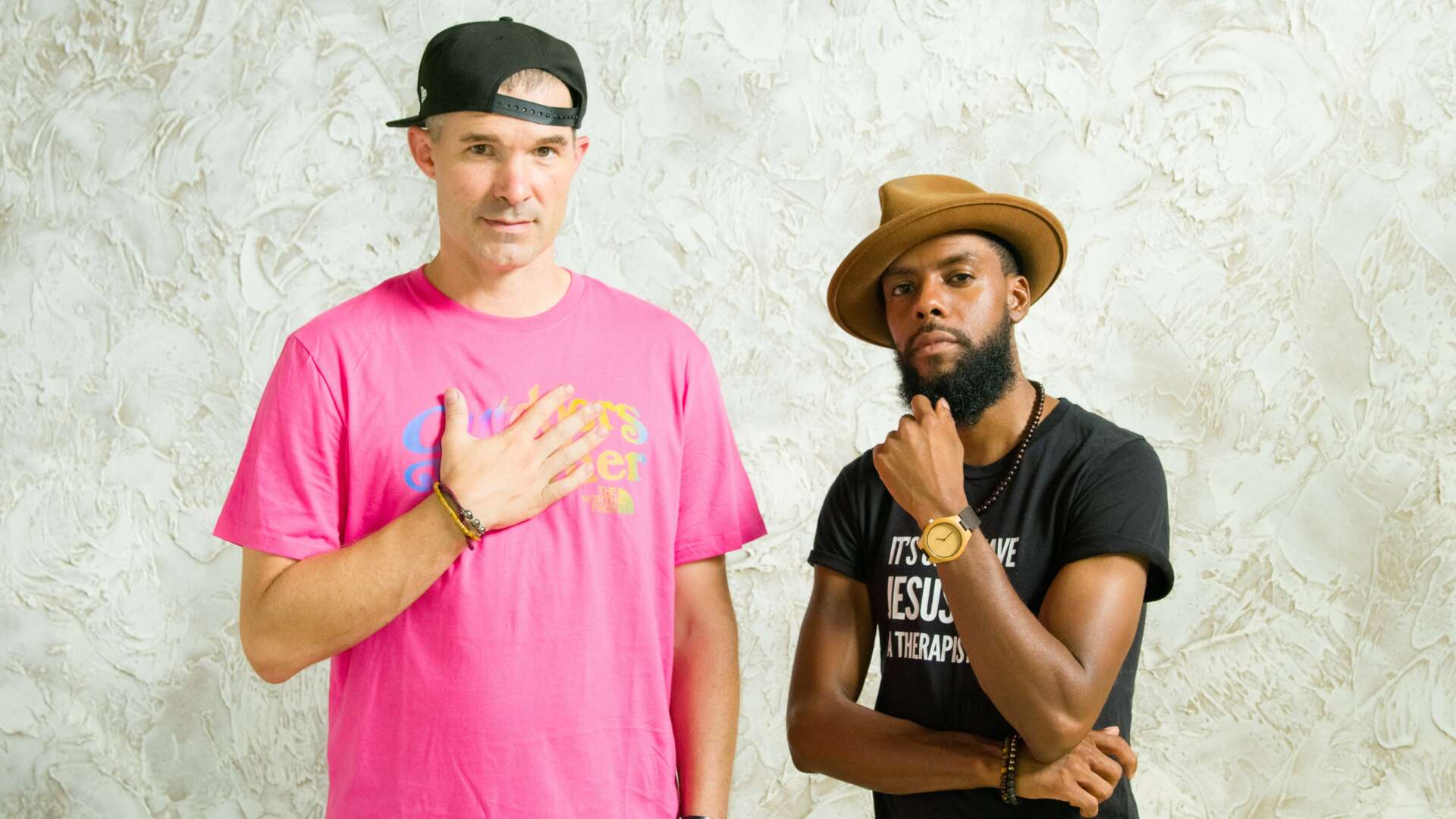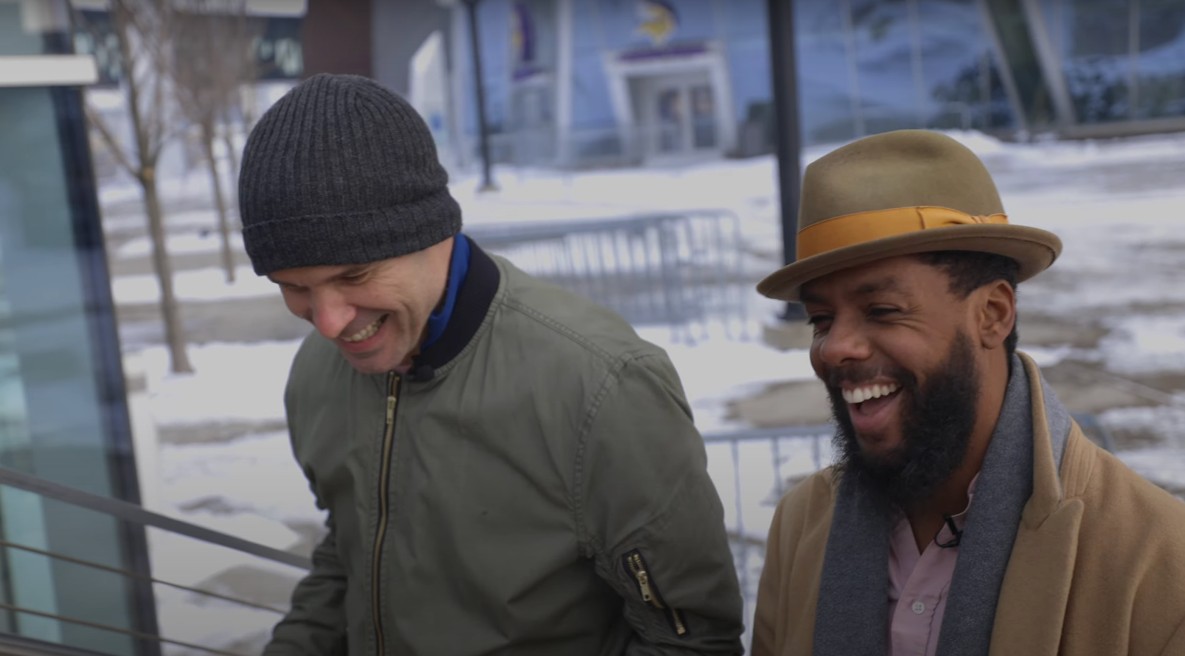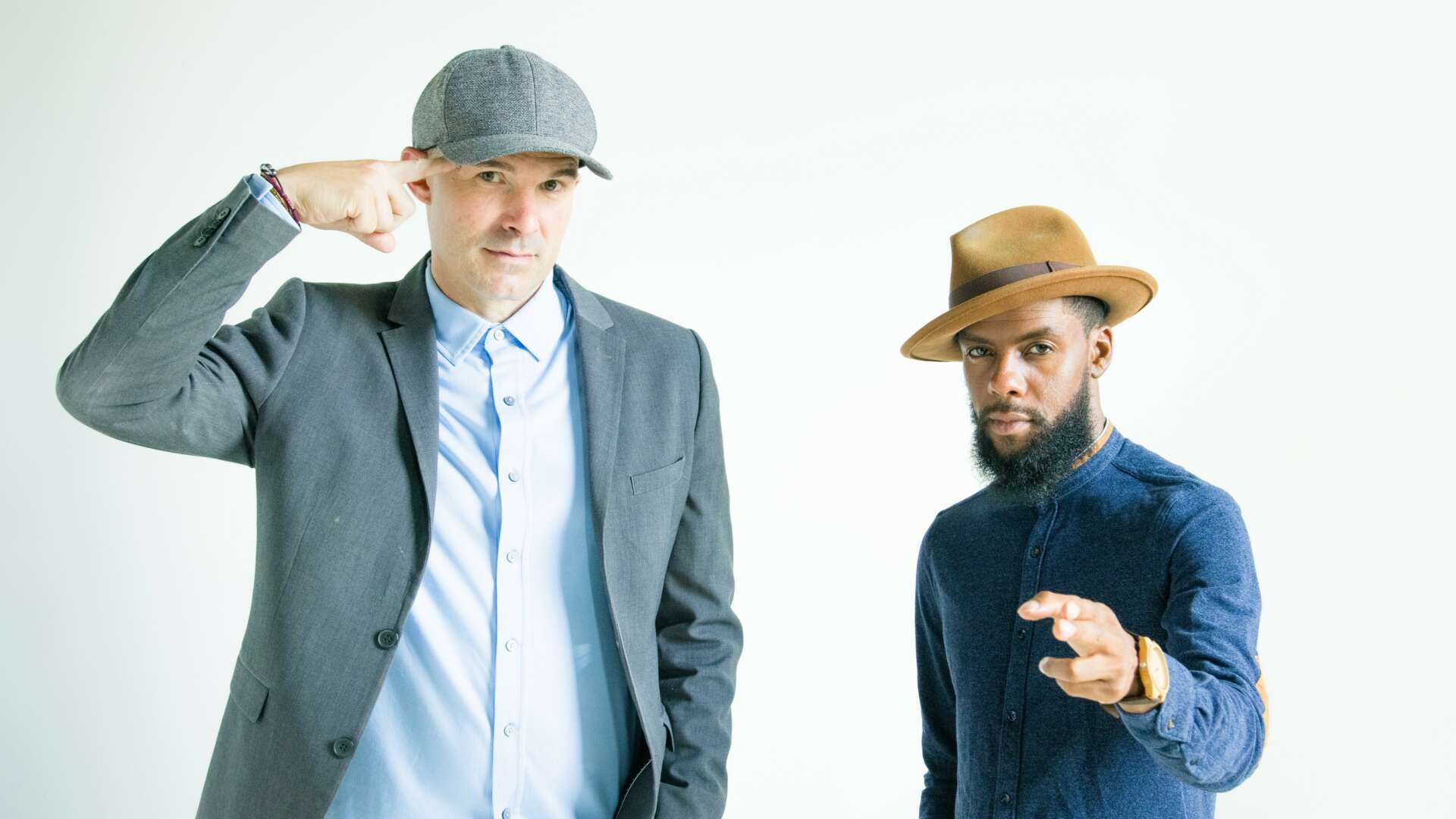Alright – so today we’ve got the honor of introducing you to David Scherer Joe Davis. We think you’ll enjoy our conversation, we’ve shared it below.
David Scherer, thanks for joining us, excited to have you contributing your stories and insights. Can you talk to us about a project that’s meant a lot to you?
We were the keynote performers at a conference recently presenting on anti-racism and a leader came up to us afterward and said “I’ve been trying to get my people to care about racism and they have not listened. One of my fiercest opponents was with me today and after seeing your performance she said to me “Oh my gosh, we have to take this seriously and go back and tell everyone about it.” We are so grateful to be able to see these dramatic moments of transformation from people who are early in their anti-racism journey. Not every project provides this, but because music and poetry are such powerful tools, we do witness people’s hearts transform pretty frequently. Our hope is to give participants a new song to sing rather than just beating them down for what they haven’t learned yet. They usually respond really favorably to this approach.

As always, we appreciate you sharing your insights and we’ve got a few more questions for you, but before we get to all of that can you take a minute to introduce yourself and give our readers some of your back background and context?
We have been working together for the past 10 years. David Scherer and Joe Davis (JUSTmove) provide music, poetry, and storytelling to help people for wherever they are on their journey of anti-racism and interculturality. We have both been performing for many years and have seen that music and poetry can be tools for healing. We weave in all of the important frameworks for DEI work into the art that we share and provide a creative way to talk about important issues. We like to work with organizations who want to have these important conversations but don’t know where to start. Either that, or they have tried to have the conversation but have been unsuccessful.
Our body-centered approach is important in leveling the playing field for everyone. We all have a body and every “body” has a stress response. If we can create more awareness of our own bodies’ responses to discomfort, we can create more space to help metabolize some of the racialized trauma that is carried by both individuals and organizations.
Secondly, we use art to give people a new song to sing. For so many people working in DEI spaces, it can feel like a total drag to do the work. We want to reframe this and create more joy and beauty in the work. Art helps us do that.
Lastly, we approach everything with an invitational posture. In other words, we do not employ guilt, blame, and shame as tools in our work. There are some people who have felt beat up by DEI work. While we may have discomfort as we ask difficult questions about ourselves, the goal is not to make people feel bad. We know that human development is incrimental and we ensure that our offerings are developmentally appropriate. If the choice is to be right or effective, we would much rather be effective in moving the needle forward.
We have had multiple clients come up and tell us that they felt cared for throughout the process. we take pride in the fact that our methods match our goals. In other words, because we want to create a world of compassion, justice, creativity, etc., these values are woven into how we treat each person that we work with.
We provide three different packages to our clients:
“Seed planting” (60-90 minute performances),
“Tilling the Soil” (Group Intercultural development assessment with half-day workshop)
“Tending the Garden” (Mixed ecology of coaching, assessment, workshops, and performances)
We would love to work with schools, non-profits, faith communities, or anyone who wants to do this important work of paying attention to the “differences that make a difference”. www.justmoveculture.com

Is there mission driving your creative journey?
Our goal is to repair what has been broken (in ourselves and in the world). Everything we do is about this repair work. For some, it is healing from trauma one bite of the elephant at a time. For others, it is about repairing our broken system of housing one racial covenant renouncement at a time. Whatever those ways our of healing our communities and the planet, we are committed to inspiring people to get to work on this healing project.

Is there something you think non-creatives will struggle to understand about your journey as a creative?
One of the most difficult aspect of being a self-employed creative is managing time. Without a boss telling you what to do all the time, you have to cultivate the discipline within yourself to know what you should be working on and how it is contributing to the bigger goals you have. “Block scheduling” can be a helpful practice for this. That means that you block your day into three chunks. Once you know how many chunks a week you want to spend, you have to honor those chunks that you have designated to time off. When it is your passion, it feels like you are always working and never working. So, you have to find ways to turn it off and turn it on. We both have neurodiversity and need extra tools for executive functioning. If you have ADHD or other types of brains, make sure you get the extra help you need so you can prioritize and get the work done.

Contact Info:
- Website: www.justmoveculture.com
- Instagram: @joedavispoetry, agapedave1
- Twitter: @joedavispoetry, agapedave1
- Other: Tiktok: @justmoveculture
Image Credits
Photo by Elliot Malcom


